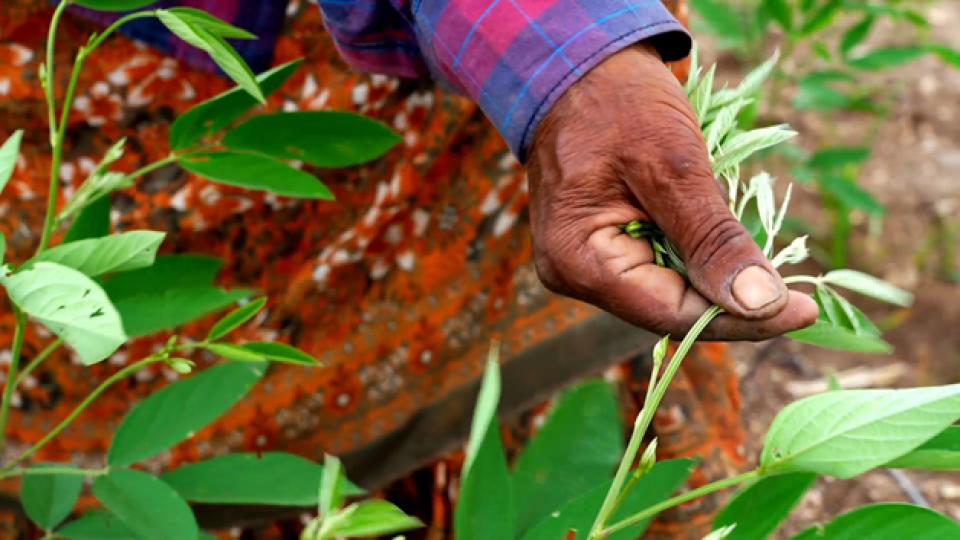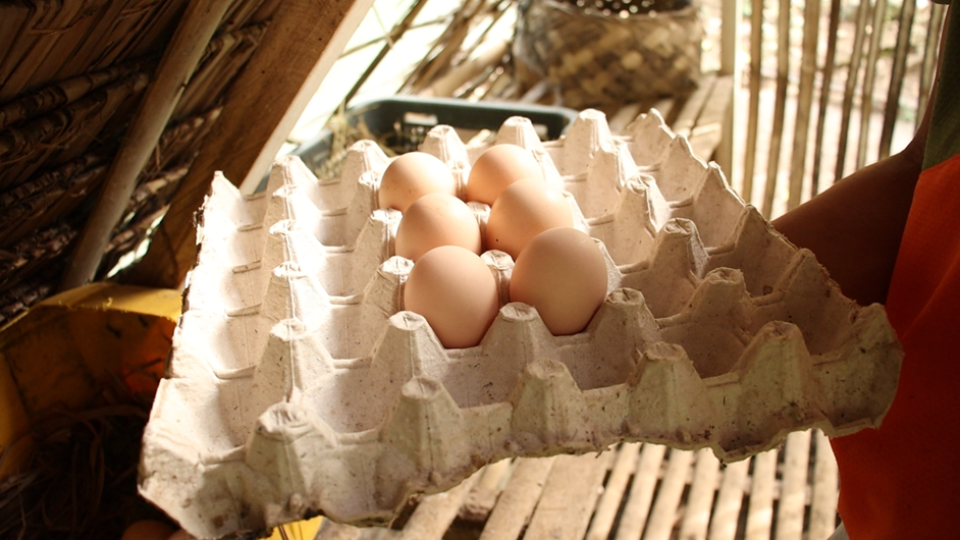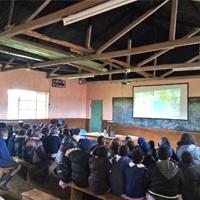
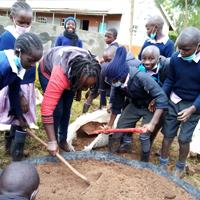
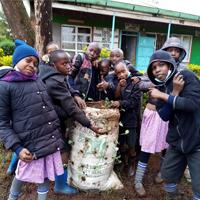
The Entrepreneurs for Rural Access (known as ERAs) of Access Agriculture (www.accessagriculture.org) have been working with youth in schools and farming communities surrounding the schools as part of a joint project with the Knowledge Centre for Organic Agriculture in Africa (KCOA), a programme funded by BMZ and implemented by GIZ.
The activities focus on screening farmer training videos to scale up the adoption of agroecological farming practices, such as making compost, establishment of vegetable gardens and using environment-friendly approaches to pest management.
Sylvia Wangui Njonjo, an ERA in Kiambu County, near Nairobi, Kenya, says that she has shown Access Agriculture training videos in two schools – Makutano Secondary School and Njoro Primary School. Students from the two schools have already set up vegetable gardens and small watering systems to irrigate the gardens after watching the videos and going through the practical sessions.
“It has been very easy to train them using the videos since they can see everything in action. Apart from the two schools, more than 100 farmers in Tiekunu and Kagoiyo villages have benefitted from the training. We aim to reach as many farmers as possible,” Sylvia adds.
To encourage agribusiness among youth and farmers, they are trained in topics relating to food processing and value addition for various products. The trainees are introduced to various technologies such as growing cassava and vegetables, which are later dried and ground into flour. The aim of this work is to help the families store these products for consumption at home and sometimes sell them for income.
Some of the Access Agriculture ERAs are also involved in the Schools and Colleges Permaculture Programme (SCOPE), a non-governmental organisation that aims to empower youth through the adoption of organic agriculture practices. SCOPE activities are carried out in Kenya, Uganda and Zambia among other African countries.
Under the SCOPE programme, schoolchildren are shown videos that train them in chemical-free farming practices, such as making compost for soil fertility improvement, natural pest management practices and even methods on how to save seeds in seed banks. The students are then expected to establish kitchen gardens both in schools and their homes where they can grow various vegetables that meet their needs and save the cost of buying vegetables and fruits.
Access Agriculture ERA, Maureen Njeri Maina, Field Trainer at SCOPE, uses a solar-powered smart projector that she has received from Access Agriculture, to screen farmer-training videos for participants of the Thika Child Rescue Centre in Kiambu County, which caters for boys with special needs. About 100 boys, some of whom are physically or mentally challenged, reside at the Centre but attend normal schools in Thika town.
They have been quick to pick up good agricultural practices through the training videos and have established a model kitchen garden at the Centre where they grow vegetables and fruits. Schoolchildren from many other schools come to the Centre to learn how to establish their own kitchen gardens.
“After we screened the videos, the students were quick to learn the various skills shown in the videos.” explains Maureen. “In fact, they are so good at it that they even point out any mistakes I make when I am training other groups that visit the Centre to learn. The Centre is now self-sufficient in vegetable production even during dry spells,” she adds.
More than 11 schools from the surrounding community have benefitted from training at the Centre. Schools from as far as Baringo, Machakos and Muranga have visited the Centre to learn, while others have requested her to visit their schools to screen agricultural videos and train them on selected agricultural value chains.
Maureen says she is also discussing with Macheo Children’s Centre in Thika to start a similar project like the Thika Children’s Rescue Centre to enable it to become self-sufficient in food production and cut the cost of buying vegetables and fruits from the market.
Related Access Agriculture videos
Teaching agroecology in schools
Using sack mounds to grow vegetables
Note: Peter Kamau is a journalist from Kenya.

